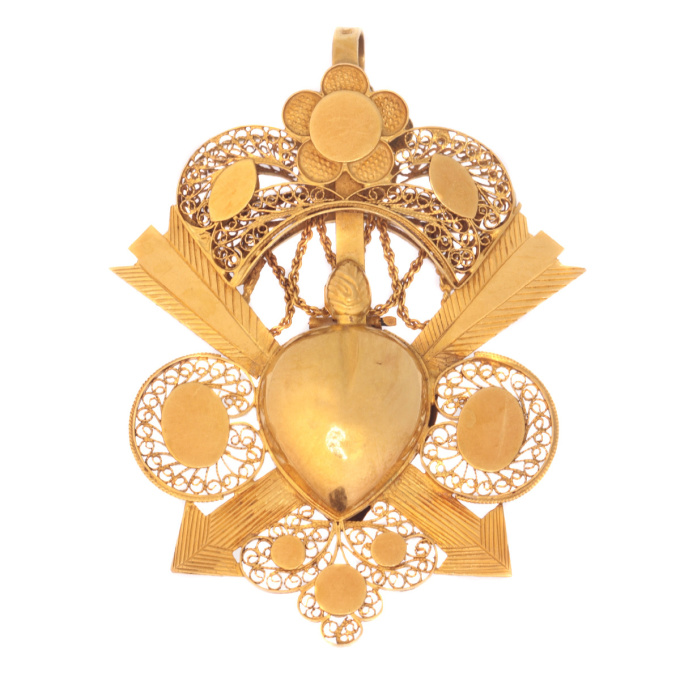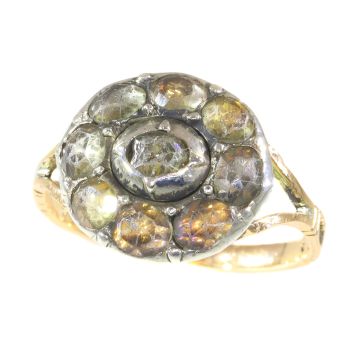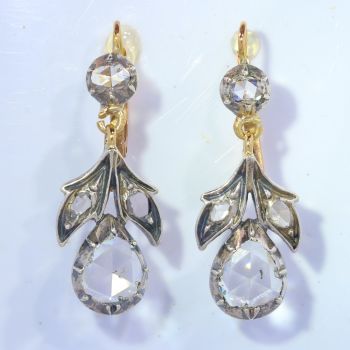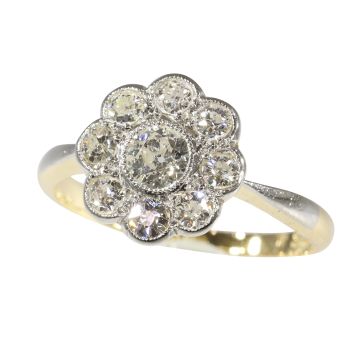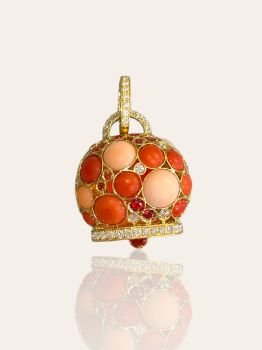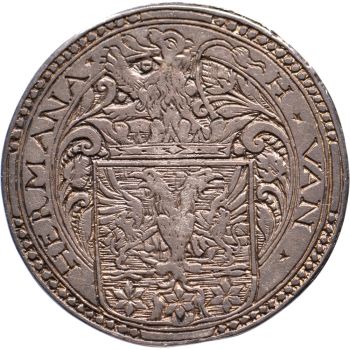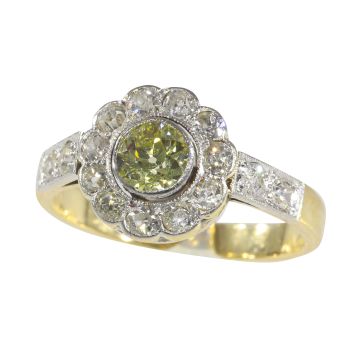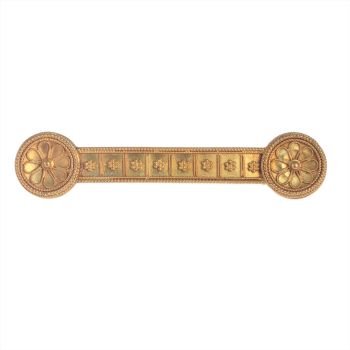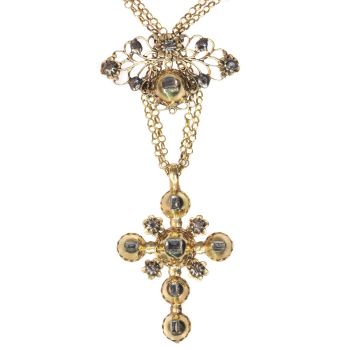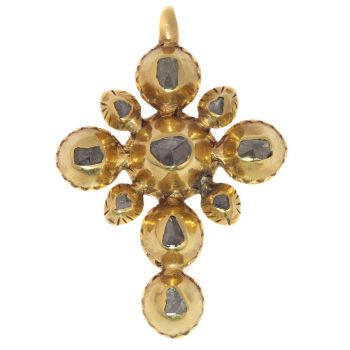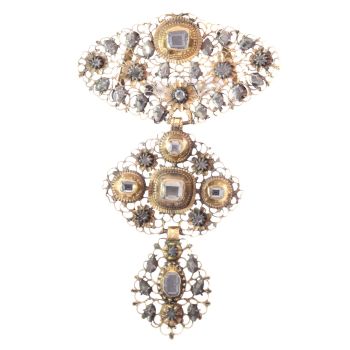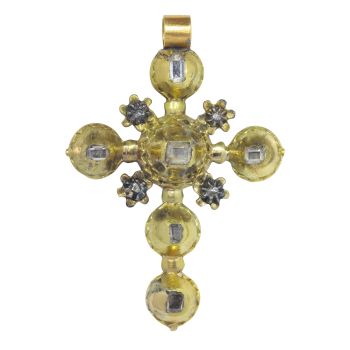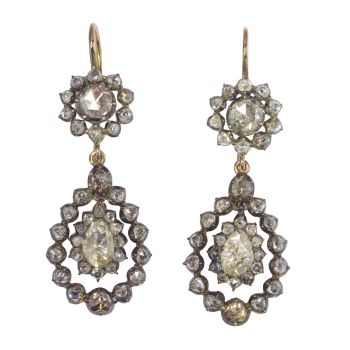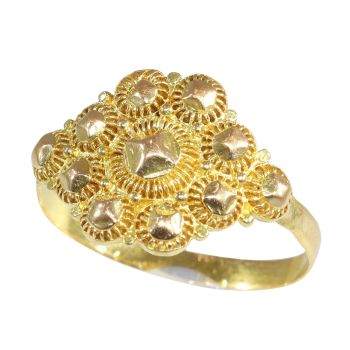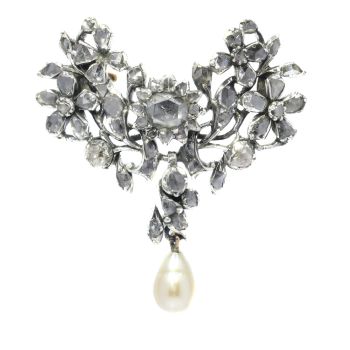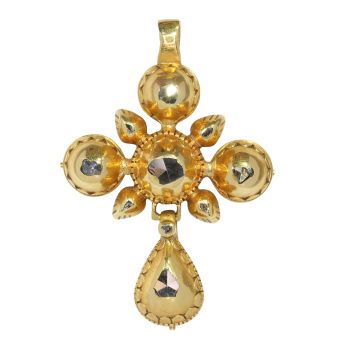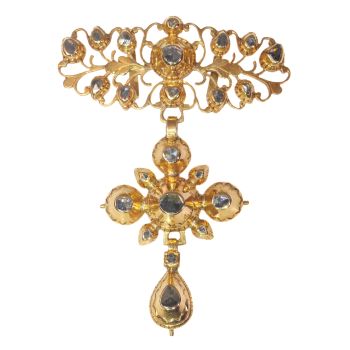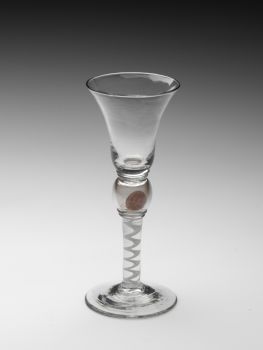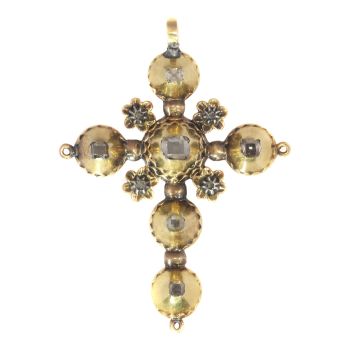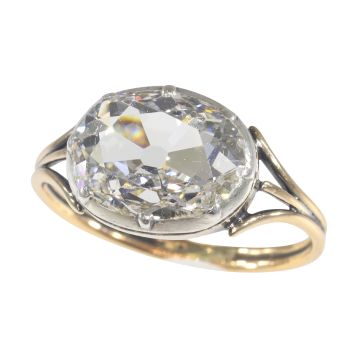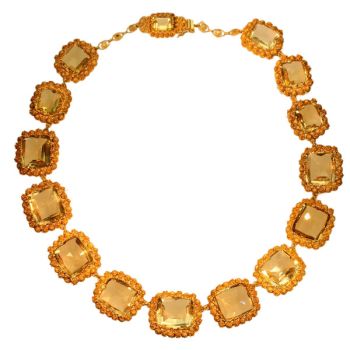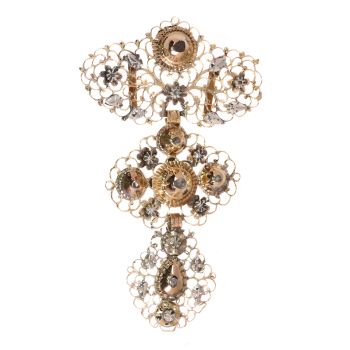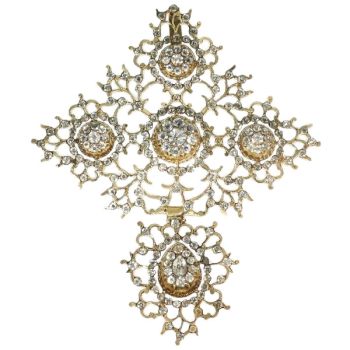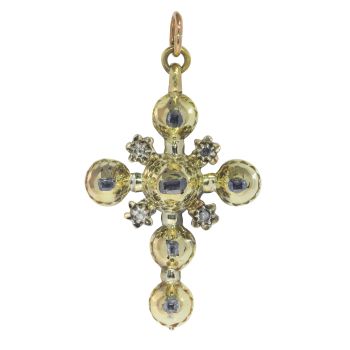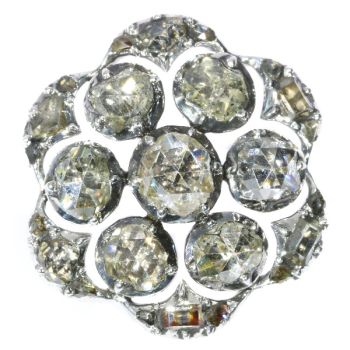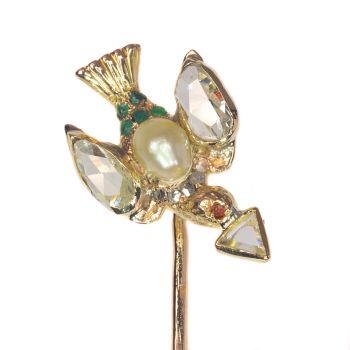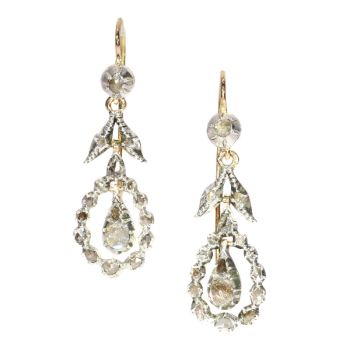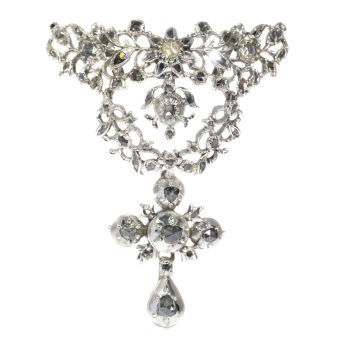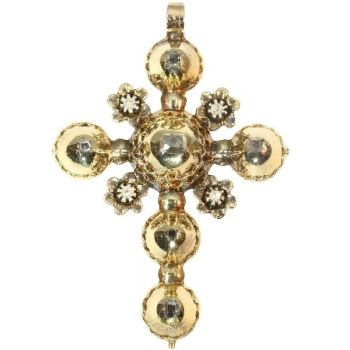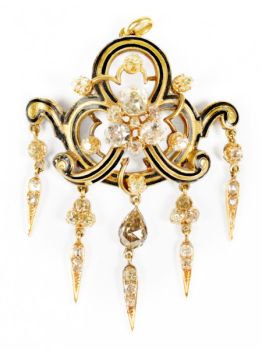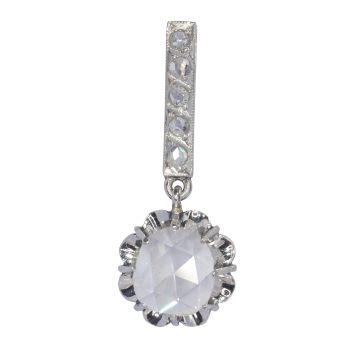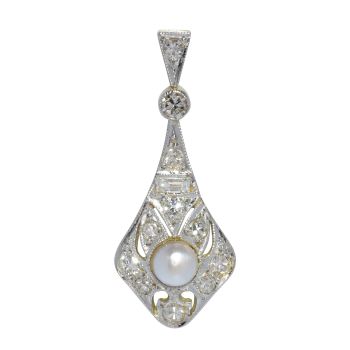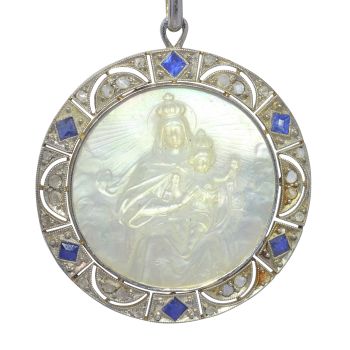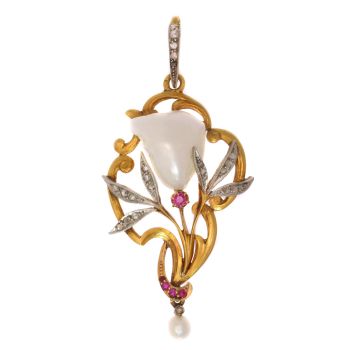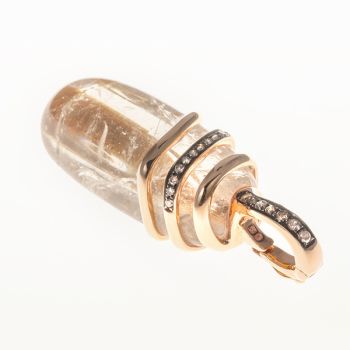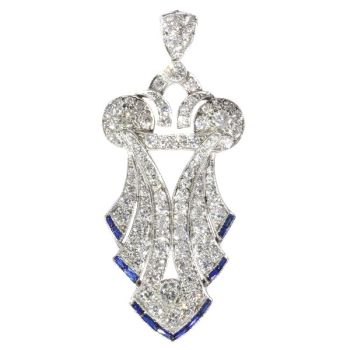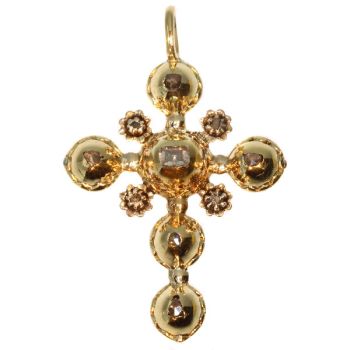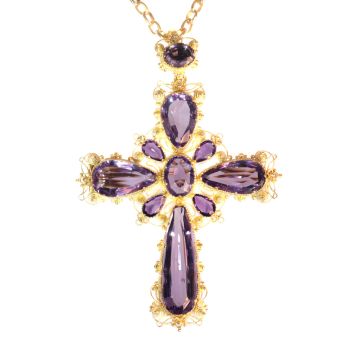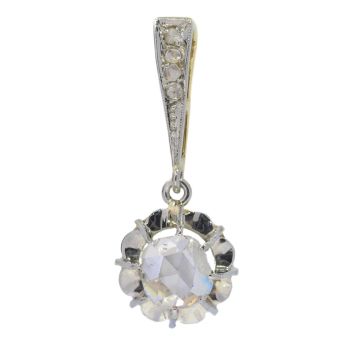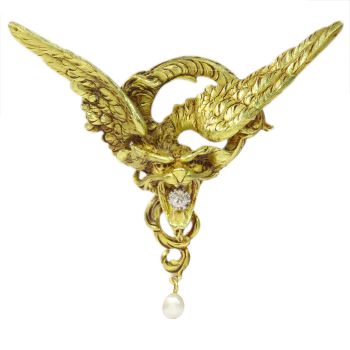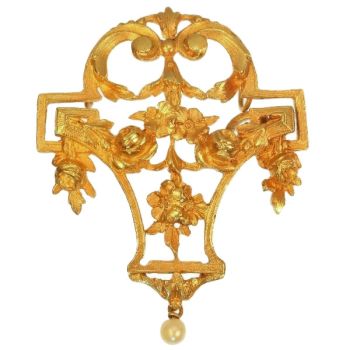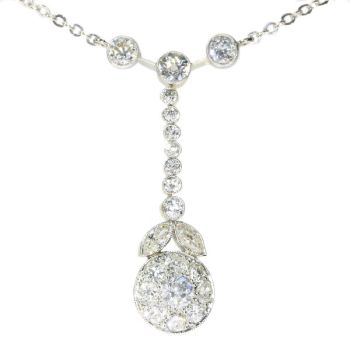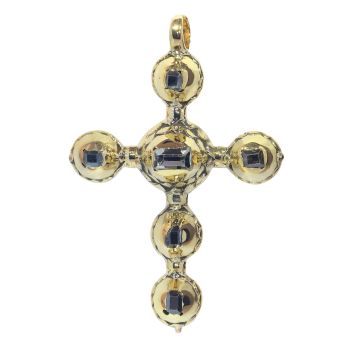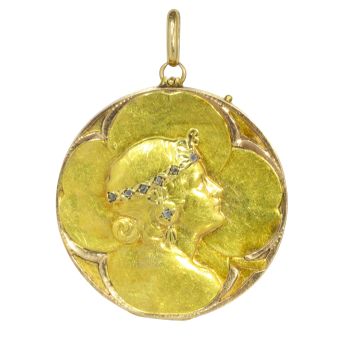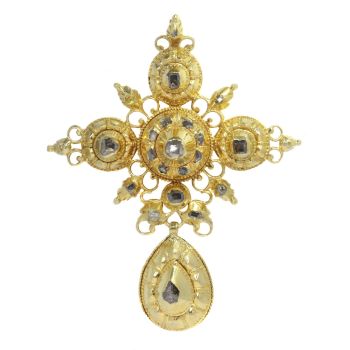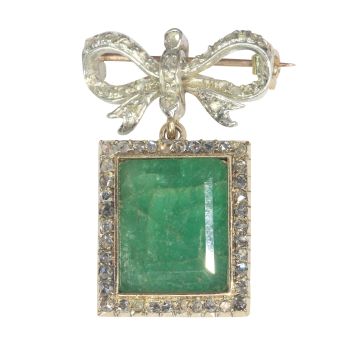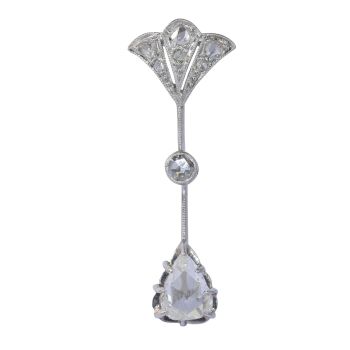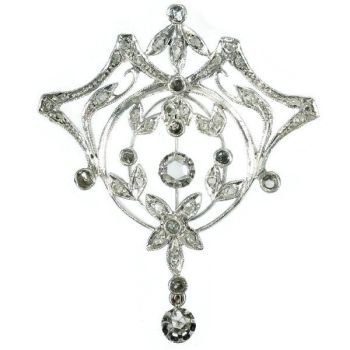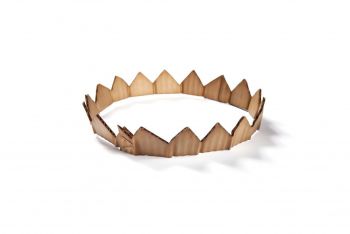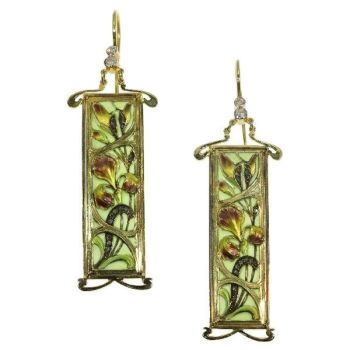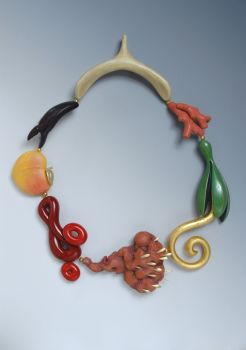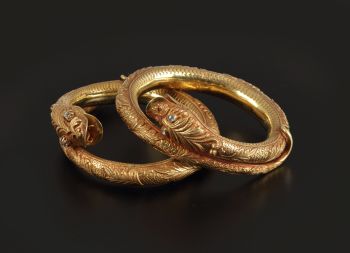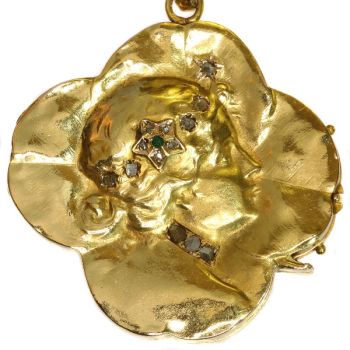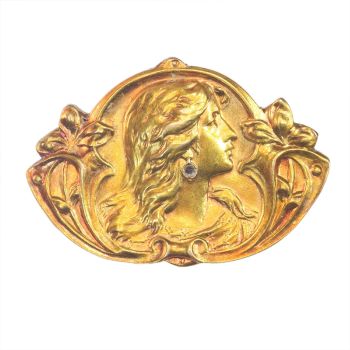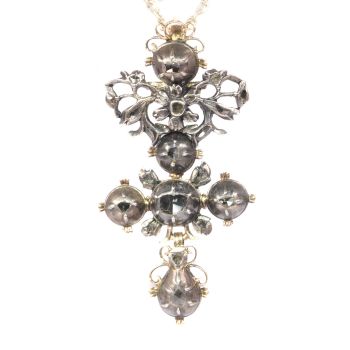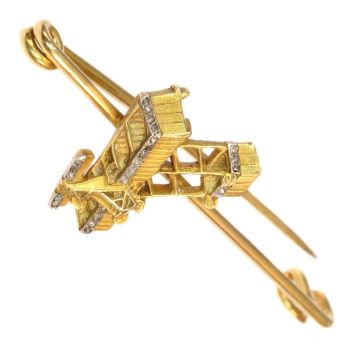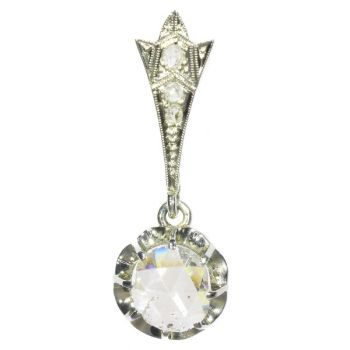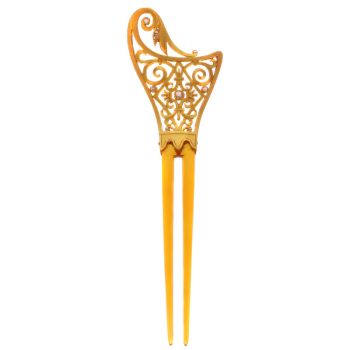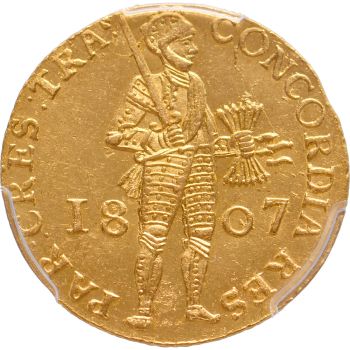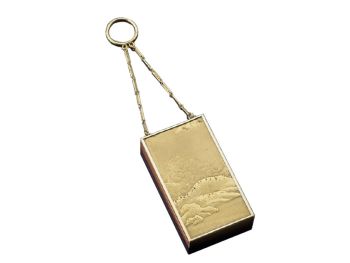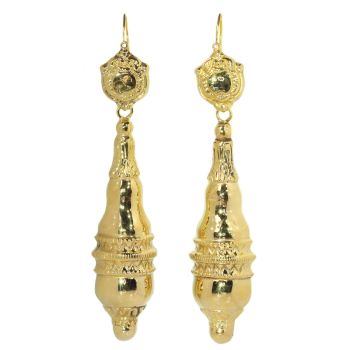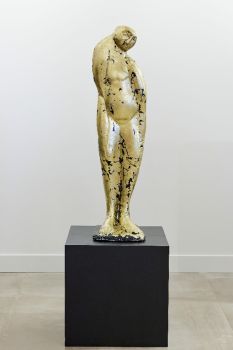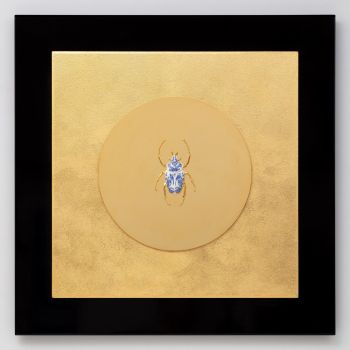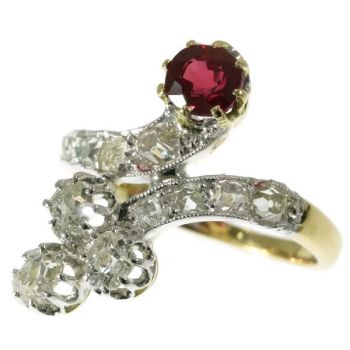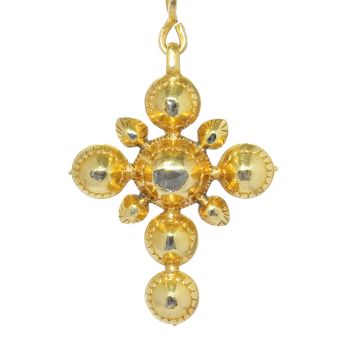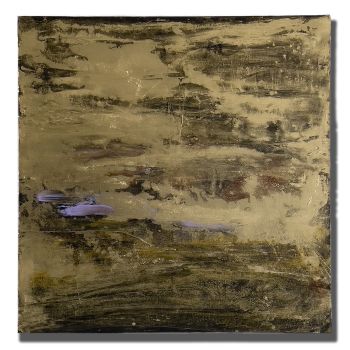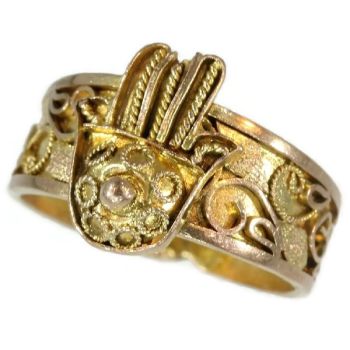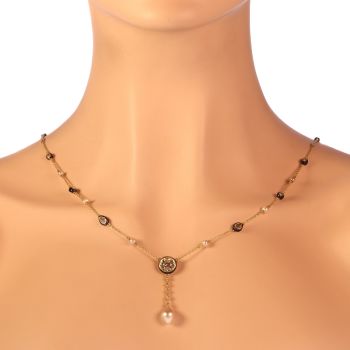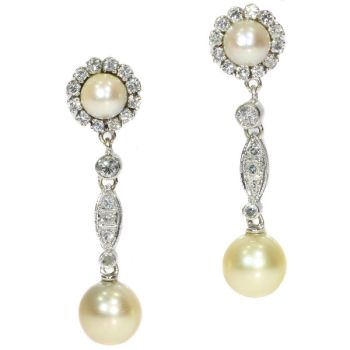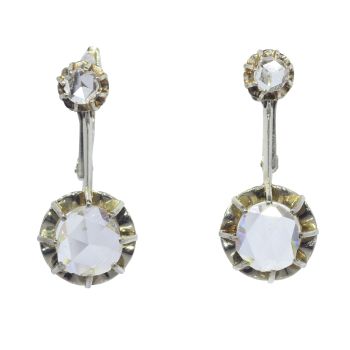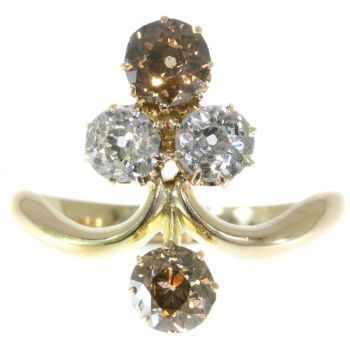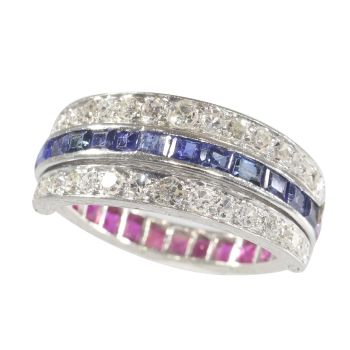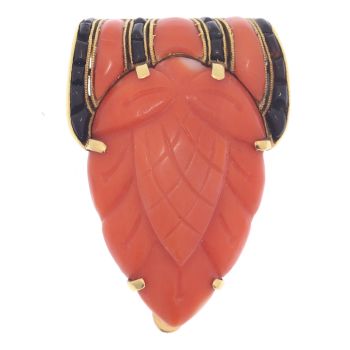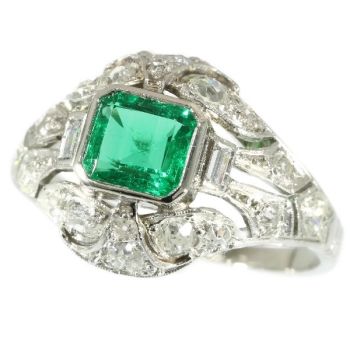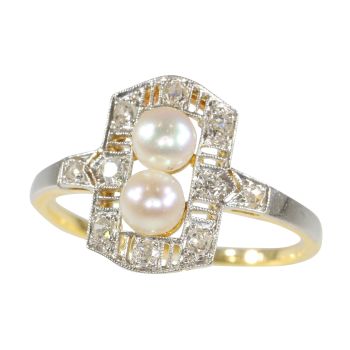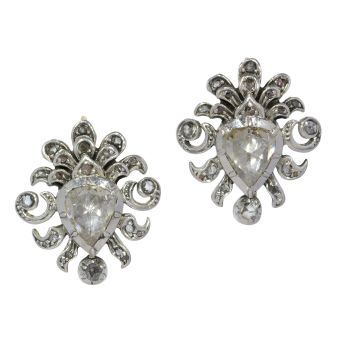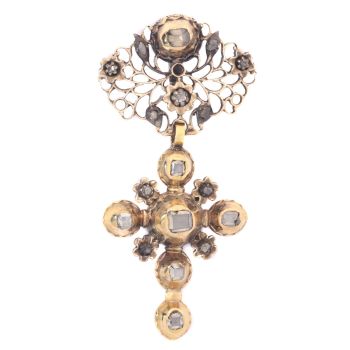Pendentif médaillon coeur géorgien de la fin du XVIIIe siècle en filigrane d'or 1800
Artiste Inconnu
Adin Fine Antique Jewellery
- Sur l'oeuvre d'art
Gold filigree pendants with two crossed arrows, crowned, with in its center a burning heart-shaped hinged little box are usually made somewhere between 1780 and 1820. Most of them were made in Belgium and/or France but there areknown examples made in Holland too. Jewelry like this was mostly worn on weddings and other important occasions.
Antique jewelry object group: locket/pendant
Condition: very good condition
- (more info on our condition scale)
Country of origin:Although it does not carry any legible control marks we believe this to be of Belgian origin.
Style: Georgian - Georgian style is the name given in most English-speaking countries to the set of styles current between 1720 and 1840. It is eponymous for the first four British monarchs of the House of Hanover—George I of Great Britain, George II of GreatBritain, George III of the United Kingdom, and George IV of the United Kingdom—who reigned in continuous succession from August 1714 to June 1830.
- See also: Georgianor more info on styles
Period: ca. 1800
- (events & facts of this era, poetry of this era, fashion of this era)
Source of inspiration: Love and romance
Theme: Heart - The heart has long been used as a symbol to refer to the spiritual, emotional, moral, and in the past also intellectual core of a human being. As the heart was once widely believed to be the seat of the human mind, the word heart continues to be used poetically to refer to the soul, and stylized depictions of hearts are extremely prevalent symbols representing love. (from: Wikipedia)
Material: 18K yellow gold
- (more info on precious metals)
Technique: Filigree (formerly written filigrann or filigrane) is a delicate kind of jewel work made with twisted threads usually of gold and silver or stitching of the same curving motifs. It often suggests lace and French from 1660 to the late 19th century. Itshould not be confused with ajoure jewellery work; while both have many open areas, filigree involves threads being soldered together to form an object and ajoure involves holes being punched, drilled, or cut through an existing piece of metal. (from: Wikipedia)
Hallmarks: Illegible remains.
- (more info on hallmarks)
Dimensions: height 4,85 cm (1,91 inch)
Weight: 5,30 gram (3,41 dwt)
Reference Nº: 19217-0001
Copyright photography: Adin, fine antique jewelry
- Sur l'artiste
Il peut arriver qu'un artiste ou un créateur soit inconnu.
Certaines œuvres ne doivent pas être déterminées par qui elles sont faites ou elles sont faites par (un groupe d') artisans. Les exemples sont des statues de l'Antiquité, des meubles, des miroirs ou des signatures qui ne sont pas claires ou lisibles, mais aussi certaines œuvres ne sont pas signées du tout.
Vous pouvez également trouver la description suivante :
•"Attribué à …." A leur avis probablement une oeuvre de l'artiste, au moins en partie
•« Atelier de …. ou « Atelier de » À leur avis, une œuvre exécutée dans l'atelier ou l'atelier de l'artiste, éventuellement sous sa direction
•« Cercle de… ». A leur avis une oeuvre de la période de l'artiste témoignant de son influence, étroitement associée à l'artiste mais pas forcément son élève
•« Style de … ». ou "Suiveur de ...." Selon eux, une œuvre exécutée dans le style de l'artiste mais pas nécessairement par un élève ; peut être contemporain ou presque contemporain
•« Manière de… ». A leur avis une oeuvre dans le style de l'artiste mais d'une date plus tardive
•"Après …." A leur avis une copie (quelle qu'en soit la date) d'une oeuvre de l'artiste
•« Signé… », « Daté… ». ou « Inscrit » À leur avis, l'œuvre a été signée/datée/inscrite par l'artiste. L'ajout d'un point d'interrogation indique un élément de doute
• "Avec signature ….", "Avec date ….", "Avec inscription …." ou "Porte signature/date/inscription" à leur avis la signature/date/inscription a été ajoutée par quelqu'un d'autre que l'artiste
Êtes-vous intéressé par l'achat de cette oeuvre?
Artwork details
Related artworks
- 1 - 4 / 12
- 1 - 4 / 21
- 1 - 4 / 24
- 1 - 4 / 24
- 1 - 4 / 12

